Poland wins the first FIDE Online Olympiad for People with Disabilities
The first edition of FIDE Online Olympiad for People with Disabilities came to an end on 2nd December 2020 when Poland 1 beat Russia 3-1. Poland 1 lost the first match by 2.5-1.5 but they made a good comeback in their second encounter to clinch the Gold. Russia 1 had to settle for Silver and Ukraine 3 won the Bronze by beating Poland 3 by 2.5-1.5 and 3-1 respectively in the Finals. Four Indian team took part in the event but neither of them advanced to the Final stage. India 2 finished 13th with 9.0/14 while India 1 finished at 18th position with also 9.0/14. Photo: FIDE
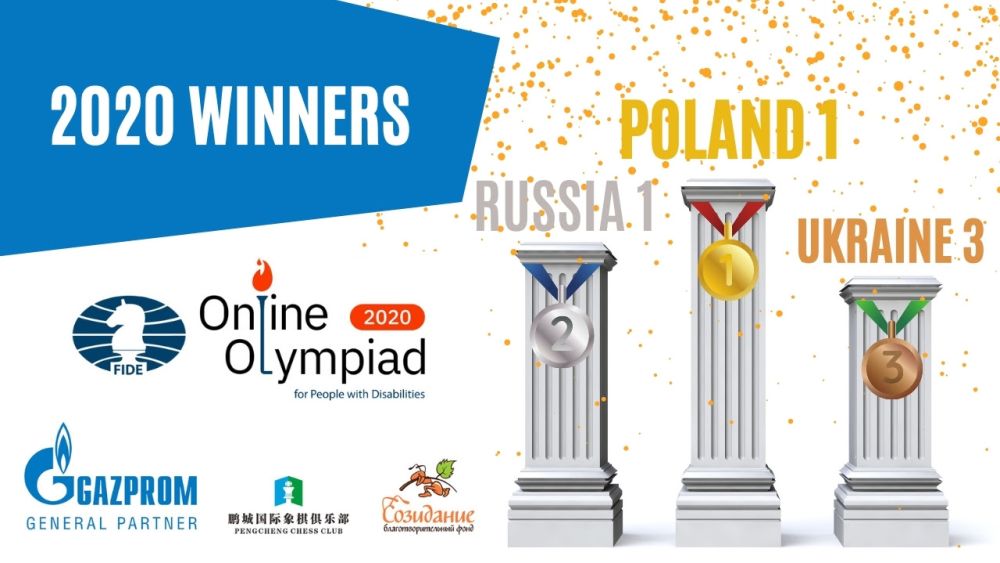
As the world celebrates the International Day of Persons with Disabilities, the first-ever Online Chess Olympiad for players with disabilities came to an end with the victory of Poland, over a field of 61 teams from 45 different countries, totaling almost 400 players. The runner up was Russia, while Ukraine gold the bronze medal.
The final between Poland and Russia was a thrilling affair, since the Russian squad won the first round by 2½:1½ (two victories, one draw, and one defeat). However, the Polish players bounced back and, on the second day of play, they pulled off a brilliant victory by 3-1 (three victories, one loss) that turned the tables in their favor.
"We knew that we had already secured the silver medal by reaching the final, so I believe that allowed us to shake off the pressure a little bit, and focus on fighting for the gold", explains Marcin Tazbir, who defends the first board for Poland. "After losing the first match, we knew that we would need to win the second for at least 3-1. Achieving such a result against a very strong team like Russia is really difficult, but we managed to do it. Luck was on our side, to a certain extent, but I believe it was a deserved victory. I am really proud of our team and would also like to thank all participants, and especially, our team captain Michał Bartel, who was really supportive during the whole event", he added.
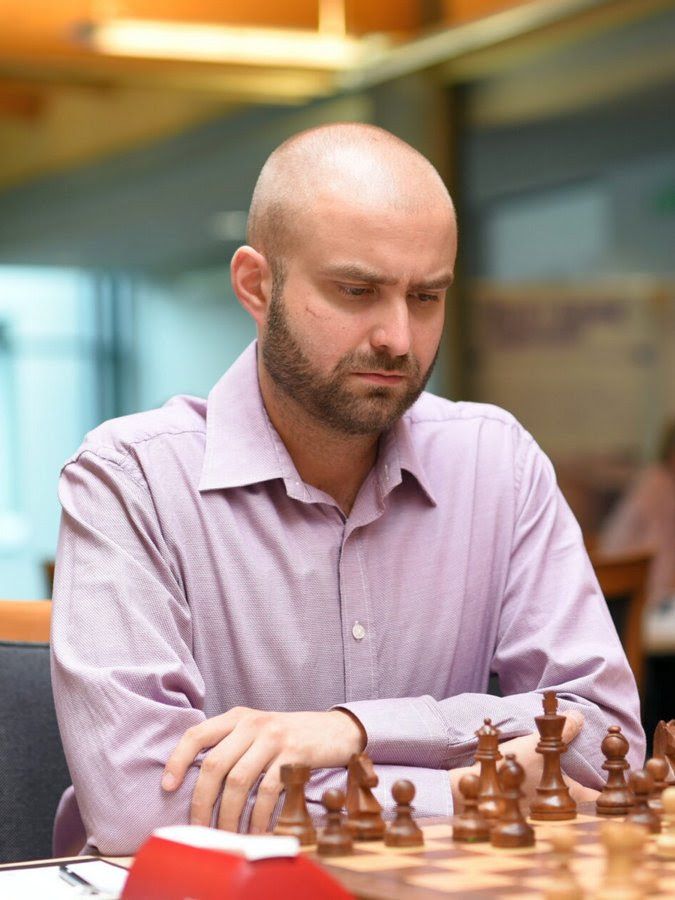
"In the last round, I checkmated my opponent with shaking hands, after a very tough game. Afterward, I checked the overall team result and I just couldn’t believe that Poland had won 3-1 and the gold medal!", said Anna Stolarczyk, who gave Poland the decisive point. Anna had lost her first-round game in the final after a blunder, but she managed to put herself together and defeat a higher-rated opponent in the key moment. "My position in the last round was very unclear and I was ready to settle for a draw by threefold repetition. Against a higher rated player, I thought it would be a good result for my team. My opponent refused to make a draw, and then took too many risks. Step by step my position improved, and I won one of the most important games of my life! Winning this last game is very important to me also because I was able to put myself together after previous failures. I can’t wait to participate in the next Chess Olympiad!"
"I really appreciate that FIDE has managed to organize this event for disabled players even despite the added difficulties caused by the pandemic. This Olympiad allowed many people with disabilities to feel and enjoy the atmosphere of a big sporting event", said Marcin.
The first FIDE Online Chess Olympiad for People with Disabilities was made possible thanks to the support of Gazprom, as General Partner, as well as Sozidanie Foundation and Pengcheng Chess Club, as sponsors.
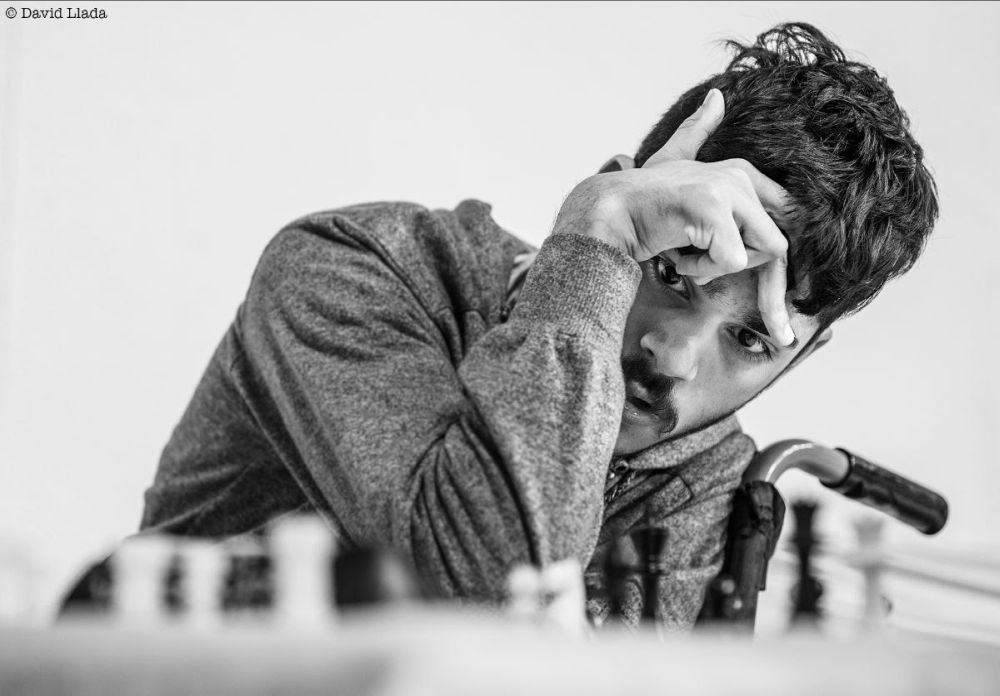
Chess, a tool for inclusion
In chess, all that counts is how strong your ideas are.
Physical differences due to age and sex are not an impediment to battle over the board, and of course, this has huge implications in the case of people with physical impairments.
"I don’t let my disability define who I am. I let my mind, and what I can do, define who I am”, explained to CNN Anna Miller, an 11-year old participant in the 2019 FIDE World Junior Championship for People with Disabilities. “Just spread the word around: chess is for anybody. Anyone can play chess: girls, boys, people with disability”.
"The potential of chess is quite big, not only in terms of leisure but also in terms of meeting the need for communication, cognitive development, and expanding communication capabilities of people with impairments", explains Irina Mikhaylova, an Associate Professor at the Russian State Social University in Moscow.
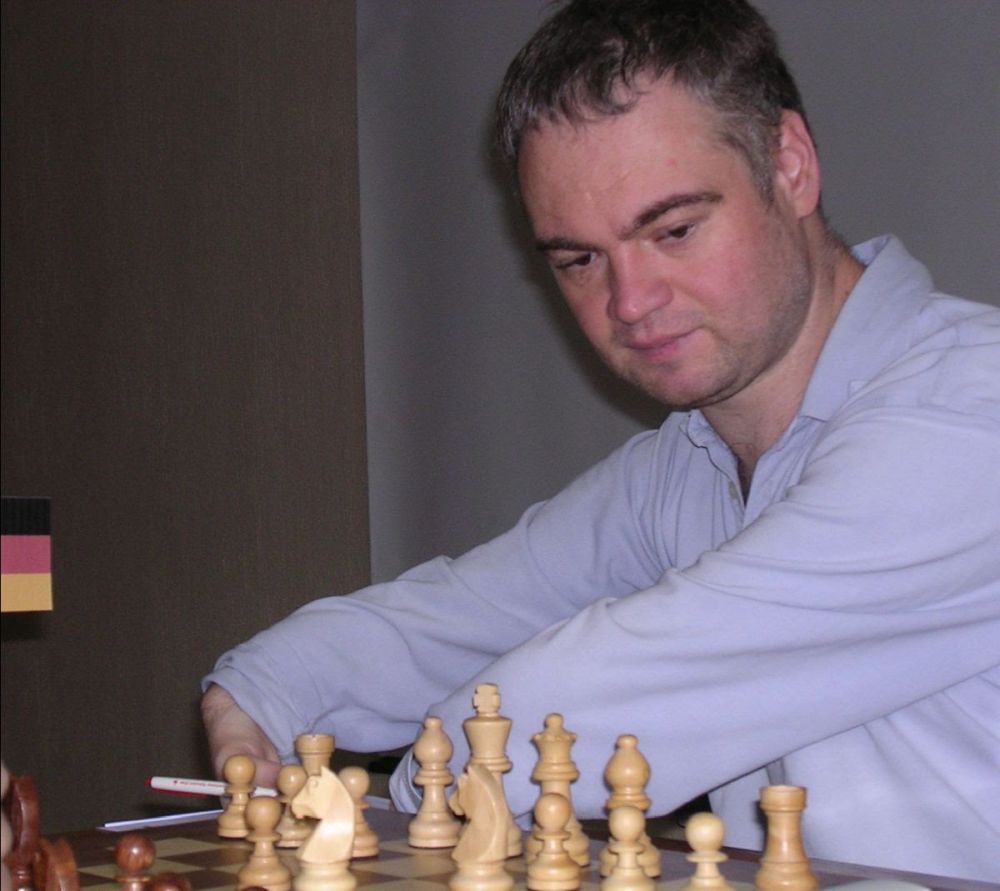
“It is a way to develop self-esteem and earn recognition”
Grandmaster Thomas Luther is a three-time German Champion (1993, 2002, 2006), who reached the top 100 in the world ranking. Thomas became a world-class figure in an extremely competitive field despite the added challenge of being born with a physical disability.
“Learning chess at an early age was key for me to succeed in life. The Chess Olympiad for People with Disabilities will give a voice to disadvantaged people and will also help them to develop self-esteem and earn recognition. Chess is the only all-inclusive sport“, explains Thomas.
“In these events, there are people who are facing challenges in life, and they will have the opportunity to meet other people facing similar chances. So there is a lot of communication, and friendships develop among the players. The social aspects are very important.”
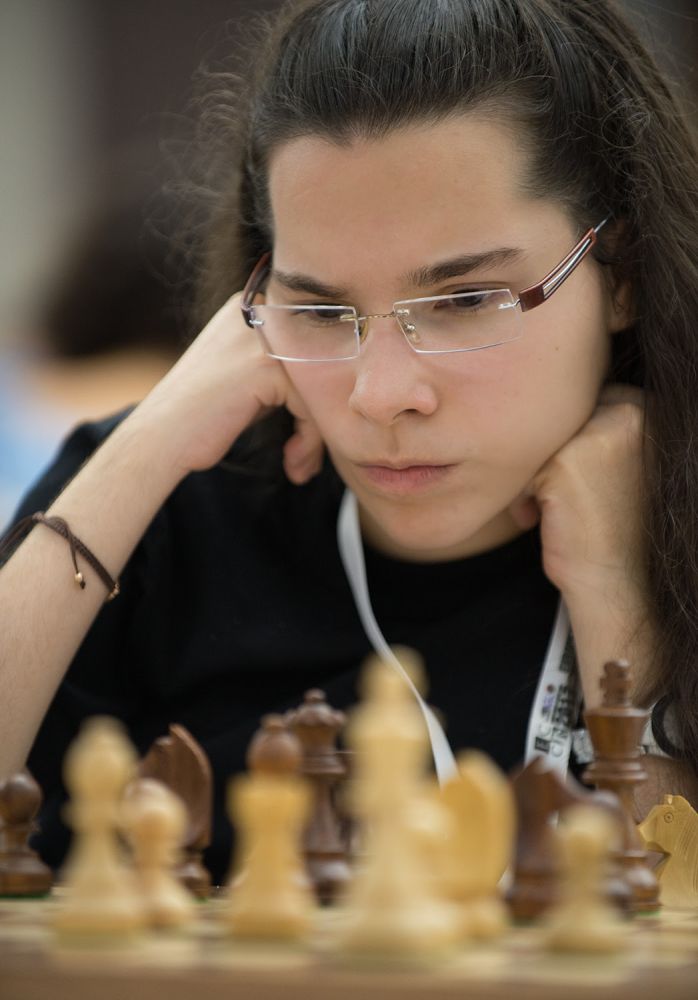
“Chess taught me to be more patient”
Taking up chess has been life-changing for many people with physical impediments: "I was more vulnerable before I started playing chess. But then I took up chess and the game made me stronger. Soon I learned to not give up after defeats, and this is one of the defining characteristics of my personality", says Handenur Şahin.
Handenur, who was born with spinal muscular atrophy (SMA), will defend the first board of the Turkish team at the upcoming Olympiad. “Chess also taught me to be more patient. Due to my disability, this feature of being more determined about my goals is crucial. Most things are more difficult to achieve for me and it is so important to know not to give up when you encounter any obstacle which comes from physical problems, or from other people’s prejudices.”
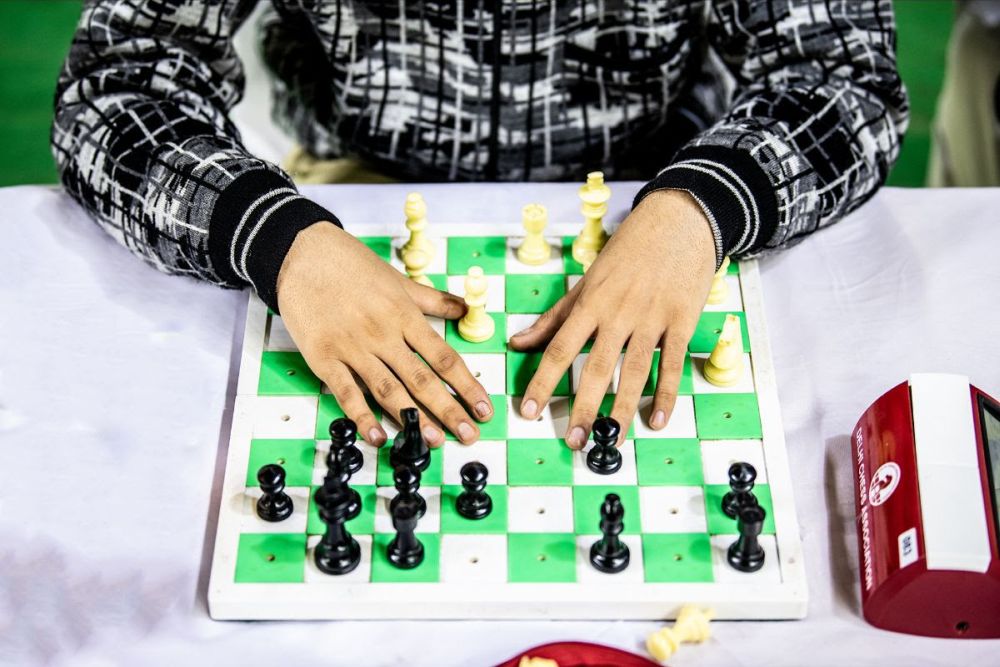
The first-ever inclusive sport
Chess became the first-ever inclusive sport in 1848 when, for the first time in history, a chess set was specially adapted to enable visually impaired players to recognize the position of the pieces by touching them. Theodore Tylor was among England´s leading players in the 1930s, and despite being nearly blind he managed to score a draw against Alekhine and Capablanca, two of the best players in the first half of the XX century.
Currently, there are three international associations for blind players (IBCA), for physically impaired players (IPCA), and for deaf players (ICCD). Each one of them is affiliated to FIDE and, traditionally, each one of these three organizations would have a team representing them at the World Chess Olympiad.
Now, FIDE has materialized the ambitious project of organizing a dedicated Chess Olympiad exclusively for people with disabilities, to be held every two years. This event will give more players with disabilities the opportunity to compete at an international event, representing their country.
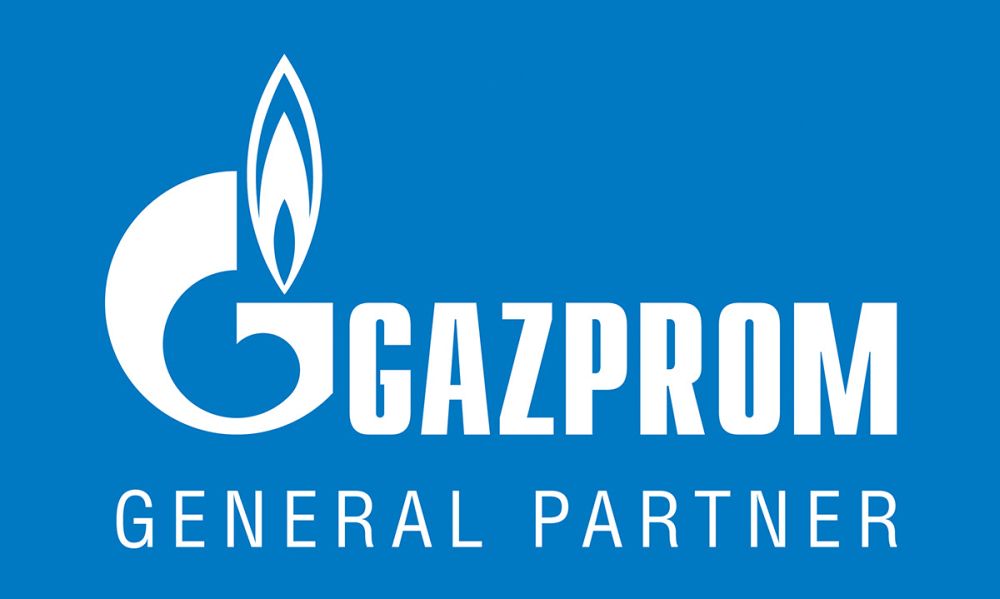
About Gazprom
Gazprom is a global energy company focused on geological exploration, production, transportation, storage, processing and sales of gas, gas condensate and oil, sales of gas as a vehicle fuel, as well as generation and marketing of heat and electric power. Gazprom is the global leader measured by the amount of reserves and volumes of gas production. Gazprom sells gas to Russian consumers and exports gas to over 30 countries within and beyond the former Soviet Union. Gazprom is the biggest gas supplier to Europe. Gazprom is among the top three oil and gas condensate producers in the Russian Federation, ranking number one in Russia in terms of electricity generation among thermal generation companies and in terms of thermal energy generation.
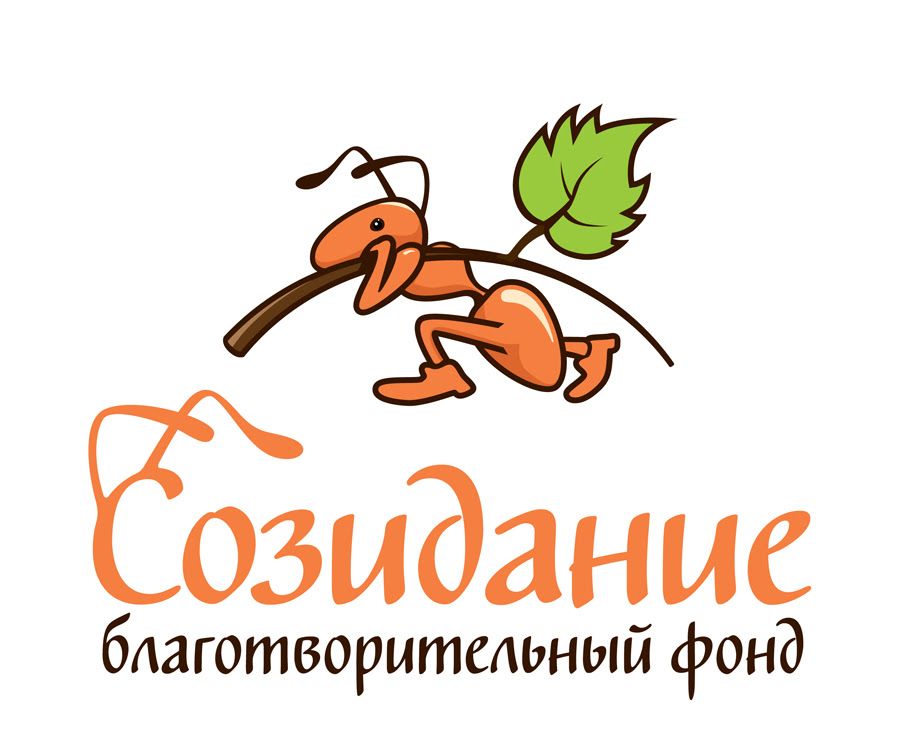
Sozidanie is a charity foundation based in Moscow. It maintains global programs of youth service and youth volunteer development to increase a level of youth responsibility and participation in Russia
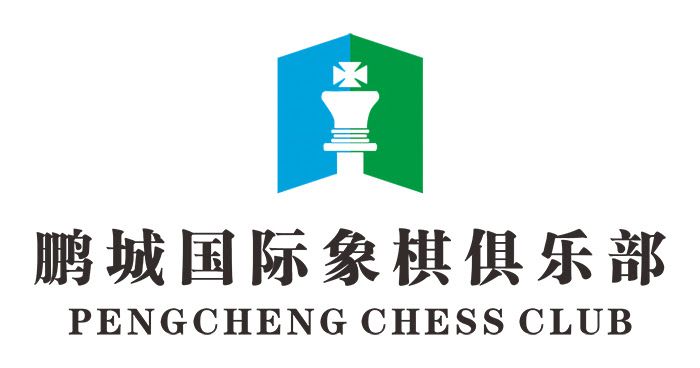
With the aim of popularizing chess education, promoting chess culture, and exploring chess talents, Pengcheng chess club is one of the leading chess clubs in China since 2005. Sponsoring the competition is not only to give back to the chess community but also to enhance the friendship with other countries and expand the influence of Shenzhen.
Links
Official site and Live broadcast
Source: Press Release









